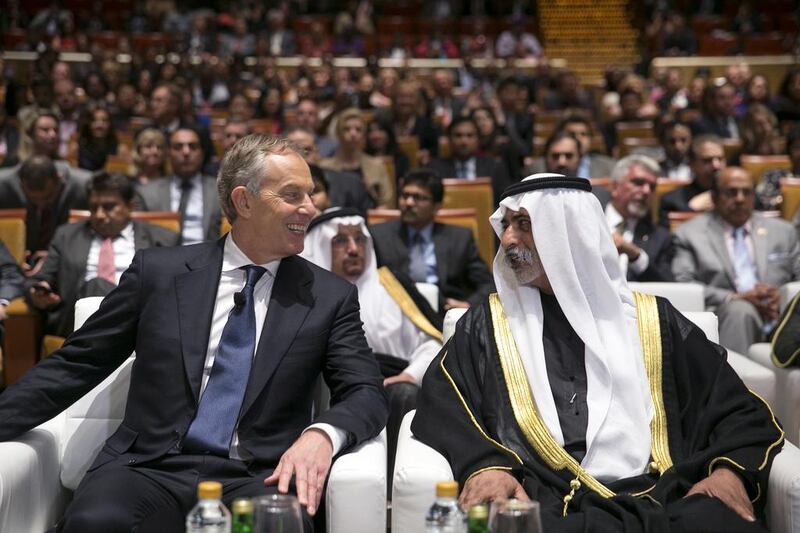ABU DHABI // Education should not simply be about educating yourself – it should be about enabling you to help others.
That was the message from Shabana Basij-Rasikh, the co-founder and president of the School of Leadership in Afghanistan, speaking at the opening of a major education conference in the capital.
Ms Basij-Rakekh was a keynote speaker at the Global Education and Skills Forum and, at only 24, she founded the first boarding school for girls in Afghanistan.
Growing up in Kabul, she was denied access to education under the Taliban and, after travelling to the US for her education, decided to go back to her native country and help others to receive the education they deserve.
“I knew that I would have a real diverse audience, from policymakers to influential people and students and educators,” she said.
“The message I hope to give is it is time for all of us in the world to start giving a purpose to the education received. A lot of the marketing around schools is ‘how can this serve you’, but I think it should be ‘how can it best prepare you to serve people’.”
Ms Basij-Rakekh now works to not only support the Afghan girls learning at her school in Kabul, but to engage with the education community as a whole, to inspire positive change.
More than 400 students from across the UAE helped to kick off this year’s forum. At the opening night there was a performance from the children, as well as speeches from figures who have helped to shape education across the globe.
Two days of deliberations, keynotes and workshops will follow on Sunday and Monday at the JW Marriott Marquis Hotel in Dubai, with more than 1,000 delegates attending.
The purpose of the event is to discuss the global challenges of a growing young population, the education funding gap, the changing nature of skills and work, as well as profound technological changes.
At the opening ceremony of the event on Saturday night at the Emirates Palace in Abu Dhabi, the former UK prime minister, Tony Blair, outlined his thoughts on improving education globally.
Also present at the opening was Sheikh Nahyan bin Mubarak, Minister for Culture, Youth and Community Development.
“It is appropriate that the Global Education and Skills Forum occurs in the United Arab Emirates, with its history and aspirations so deeply affected by a great appreciation for education,” Sheikh Nahyan said. “Sheikh Zayed compared education to a lantern that lights the way through the darkness. This forum offers you the grand opportunity to think boldly about how well we tend to the light of that lantern and ensure it burns brightly for the next generation.”
“I think a lot of education and speakers and experts always speak in the long term and think that the focus of this event is first to expand the traditional base of this discussion,” said Vikas Pota, chief executive of Varkey Gems Foundation – one of the conference organisers.
Mr Pota expressed the need to engage with the private sector, not just in education, but in industry as well, to ensure that youth across the world were given the best possible education.
“We have over 1,000 delegates from 65 countries and 40 education ministers to come and discus the education, employment and equity themes and how we can actually take them further in a much more realistic and rapid way instead of kicking it in the long grass of 10, 20 or 30 years, in that time you lose one or two generations.
“In the UAE over the last 55 years the education system has developed and matured to the point where the education and health sectors attract expats to this country and we have a widespread set of experiences that can not just be applied here but to other parts of the world,” Mr Pota said.
Contributors over the conference’s two days include the former US president, Bill Clinton; Irina Bokova, director general of Unesco; Andreas Schleicher, deputy director for education and skills at the OECD; and George Papandreou, former prime minister of Greece.
ksinclair@thenational.ae






